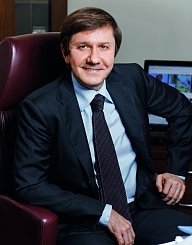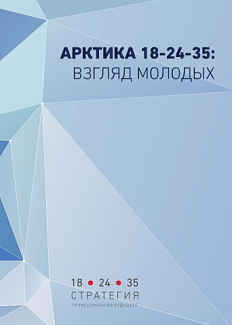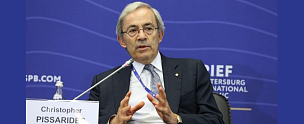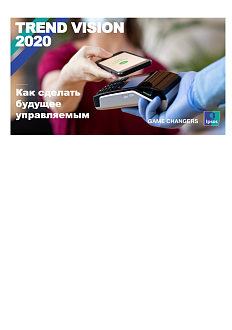At SPIEF 2017, Prosveshcheniye signed an agreement with Yandex to create a joint company aiming to develop an educational platform for schools. How is the project going?
The platform is at the testing stage. We are conducting an experiment covering 100 classes from different schools in a number of Russian regions; the initial results of the project were presented in April at the Moscow International Education Fair (MIEF 2018). Our intention is that all schools should have access to the platform by September 2018. The platform will help to develop a unique educational path for each child and improve their academic performance.
It is designed for primary school pupils. We also have some collaborative projects between Prosveshcheniye and Yandex that aim to help older students prepare for their Unified State Exams. We have created a freely available mini course designed to teach students how to avoid typical exam pitfalls, and help them understand the assessment criteria on the basis of past papers.
Education is seen as quite a conservative area. How are digital technologies being integrated into educational processes?
A modern educational system without digital technology is now inconceivable. This is proved in the 12 Solutions for New Education report recently published by the Higher School of Economics in cooperation with the Centre for Strategic Development, which also used the recommendations of Prosveshcheniye experts. The digitalization of schools is truly underway, and we can see this through various projects in this area. Digitalization helps to personalise and optimize the educational process, improve students’ results, and make teachers’ day-to-day work easier.
Online education is a rapidly developing field. Experts predict that funding for online education in comprehensive schools will reach 15–20 billion roubles by 2022. Along with electronic textbooks and e-planners, we are also seeing the emergence of new platforms, products, and services such as SkyEng, Netology, and Uchi.ru.
Besides the joint project it is carrying out with Yandex, Prosveshcheniye also has partnerships with other large information and communications companies, contributes content for the Moscow Online School, and is creating its own online school.
The sooner we start embracing new technologies, digital technologies in particular, the more successful the school pupils of today — that is, the students of tomorrow and the workforce of the not-too-distant future — will be. This is one of the key driving forces of the digital economy.
Do you see a future without paper textbooks?
There is no clear-cut answer to this one. I believe that paper books will co-exist with electronic ones for a long time, and that’s not just by force of tradition — they perform different functions. This doesn’t just concern textbooks, but other education and teaching materials, too. Maths tests and 3D modelling tasks are great online, while other subjects require paper exercise books, especially in primary schools where children need to develop their fine motor skills.
Developments in digital technology inevitably raise questions of cybersecurity. Digitization opens up new opportunities, but there is another side to it. The influence of digital technologies and the Internet on children’s minds hasn’t been sufficiently researched yet. This is why we can see certain behavioural issues in schools, both among children and in interactions with adults.
Prosveshcheniye plans to initiate an IPO in 2018–2019, issuing 25–30% of the Company’s shares. Where will this money go?
The need for investment is so high across all areas of education today that it’s easier to say where it won’t go. We’re working on many different projects at the moment, and some of them require more funding than others, since they will lay the basis for long-term plans. Here I’m talking particularly about the modern digital school and infrastructure for educational organizations.
The mission of Prosveshcheniye as a national educational integrator is to create necessary conditions for learning at any age, inspiring people for continuous improvement. This is an investment in future education, meaning an investment in children’s future and a better future of Russia.
With the former, we’re planning to focus on secondary school since around 3.5 million children in Russia are now in their last four years of school. They will soon be students at universities and vocational schools, and these are the future professionals whose job it will be to ensure that our country takes an economic leap forward. This is why it is so important to start creating pre-vocational courses in engineering, medicine, IT, and other areas. Over the past three years, we have seen medical courses appear in a few Moscow schools, and these have helped the students involved achieve an almost 100% success rate for admission to the leading medical universities. Secondary school is therefore an attractive area for investment.
When we are building new schools, it’s not just about four walls and a roof. It’s more about creating a new educational space which can deliver education at a completely new level. According to the Higher School of Economics and the Centre for Strategic Development, Government investment outside of public—private partnerships will amount to about 2 trillion roubles between 2019 and 2025, and about 1.2 trillion roubles within public—private partnerships. We are willing to work for zero profit.
We believe that there is enormous potential in providing a modern educational environment, such as proper class and lab equipment, Internet channels, and Wi-Fi access. We need educational products and services for high-achieving students and for children with disabilities.
What has been done so far to develop school infrastructure?
Several years ago, our publishing house wrote a letter to the President of Russia, putting forward a draft programme for building new schools, in which we specifically highlighted the issues of the existing school infrastructure and the shortage of school places. As a result, the School 2025 programme was launched in 2016, aiming to build and equip new schools.
We’re now equipping these new schools, and this requires only 40% of our investment. We have identified two major pilot projects, one in the Central, Northwestern, and Far Eastern federal districts (for 25 billion roubles), and the other in the North Caucasus Federal District (for 33 billion roubles), where we are considering making a contribution to building and equipping schools.
How is regional cooperation helping to improve the quality of education?
We work with all 85 regions of Russia, and almost 3,000 municipalities. Prosveshcheniye products can be found in almost every educational organization in the country, and two thirds of them have direct contracts with our publishing house.
Every partnership starts by working with the teachers at a given school. Unfortunately, in many regions, financing for methodological services and vocational training for teachers has been cut, but we try our best to compensate for this.
We also perform assessments of the regions, examine how the education system works, and identify discrepancies between performance and targets for the country’s economic development. For these problem areas, we offer task-specific solutions and programmes.
All of the above is why taking part in SPIEF means so much to us: when regional authorities do not rank education among their top five priorities, we are here to explain to them why they should. Funding education is not just about allocating money, it is an investment that will certainly bring results and pay off at both the regional and national levels. One of our main priorities is promoting this new approach to education in the Russian regions. I can say that we do already have mutually beneficial partnerships and joint projects with most heads of regions, and we have achieved real results. We should note that we cooperate successfully both with state authorities and non-governmental organizations.
In one of your interviews, you mentioned a new type of school class containing between 40 and 75 children. How can teachers effectively teach all students in a class of so many children?
If you’re working in the seventeenthcentury school of Jan Amos Komenský, then of course the fewer students there are in a class, the easier it is to teach each child. But can you imagine how new technologies are accelerating human development and our lives in general?
Recently, somebody asked me how I imagine the teacher of the future. Remember Steve Jobs walking across the stage in his jeans and black turtleneck, presenting his new gadgets? Remember how many people were eager to listen to his every word? This is how I imagine the new generation of teacher — mentors and managers confidently using new technologies. When Steve Jobs came out with his iPod, he didn’t ask you to listen to specific tracks, but he presented the opportunity, the tool.
Similarly, the teacher of the future will explain to their students that there is a tool which will help them master any profession. I strongly disagree with people who say that schools simply prepare children for adult life. Schools are where children live. Our task is to use a set of modern technologies to make life at school easy and exciting for children, but also prepare them for professions of the future that neither of us can even imagine right now.
Source: SPIEF-2018 Official Magazine






